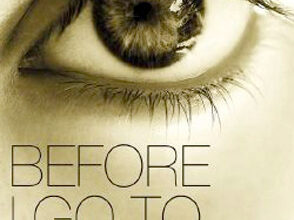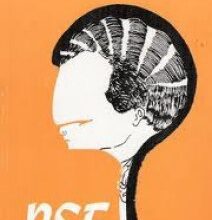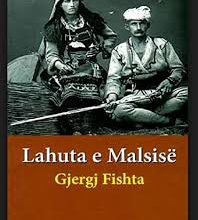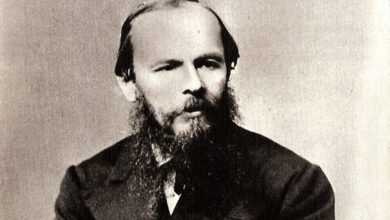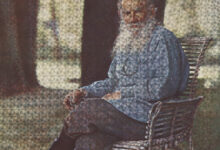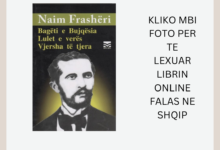Doctor Needle Faik Konica
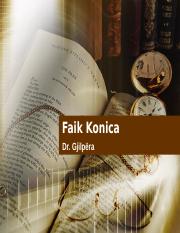
Doktor Gjilpëra Faik Konica

Konica’s most important literary work is undoubtedly the long satirical prose “Doctor Needle Reveals the Roots of Mamuras Drama”. Though imperfect, it represents his most characteristic features and values as a writer on a large scale.
“Doktor Gjipëra” was written and published in the newspaper “Dielli” in 1924. It was the time when the June Revolution had triumphed and a fierce political war was taking place in the Albanian society, before which vital problems were posed such as: solving the form of regime, agrarian reform, democratization and modernization of the state apparatus, national cultural emancipation, etc. Konica’s work is the offspring of this social-historical turn that was just beginning in the life of our people. The author was triggered by the murder of two American citizens in Mamuras, which organized the feudal reaction. Konica would not view the crime of Mamuras as a separate case, but as an event with a broad social meaning, where the interests and goals of certain circles were intertwined and the political war of the time appeared. This event would awaken the freedom-loving and illuminist ideals of the writer and would inspire the creation of a work that would shed light and generalize the contemporary Albanian reality.
The hero of the work is Doktor Gjilpëra, a young Albanian intellectual who is studying medicine in Russia and Sweden and is faced with the alternative: to stay abroad, where a career full of perspective awaits him or to return home and help his recovery, etc. especially in improving the health of the people. He decides to return to Albania, patriotism triumphs over self-interest.
Following the life line of the hero, the author will describe him in two main stages: the time of stay abroad and the time of arrival in Albania. If the first stage is the acquaintance with Dr. Gjipërën, the second stage, which constitutes the trunk of the work is the most important part, which carries and embodies the ideas of the writer. The life of the hero away from the homeland is given in a descriptive plan, evoking various episodes and mental states, which highlight the nature, interests and character of the Albanian intellectual. He is first and foremost, an obedient patriot, a man of wide culture, a trained and humane doctor, smart and full of will and determination. It is these qualities that make him return home.
Returning to Albania, Dr. Gjilperë’s widow faces a shocking reality and poses problems that include different aspects of Albanian life. Within a short time, he is acquainted with the miserable condition of the people, with the injustices done at his expense, with the state apparatus, where arbitrariness, drama, intrigue prevail, with ignorant and Anatolian officials. In this tragic-comic state, the opposition is made up of people who have nothing to do with law and morality.
The main place in the work is occupied by the reports established by Dr. Gjëlpëra with different categories of the Albanian society, with their most typical representatives. In these relations, the socio-psychological discovery made by the author is mutual, on the one hand the character and meaning of Dr. Gjëlpërë, the ideal of a European man, the patriotism and humanism of an emancipated man are outlined more and more clearly, while on the other hand, various figures of the official circles of the parish of the intellectual circles are drawn. Especially the figure of Dr. Gjëlpërë is quite clear in front of his two colleagues, Dr. Embrullahu and Dr. Protogor Dhallë. More than in work circumstances, we recognize them in conversations and debates, as social types opposite to the hero, with different medical concepts and practices. While Dr. Gjëlpëra is the man of modern medicine, partisan of nature, of heliotherapy (sun, water, air) who thinks that nature is the first human doctor, the other two doctors appear anachronistic, are the embodiment of the detached medical dogma in the life of principles of science. The old world in this work consists not only of two doctors, but also of other negative figures. Such is Minister Salemboza, a typical representative of backward and anti-national forces, the type of Anatolian tyrant, intriguing and cunning, smart and agile. Whereas the environment and the oriental mentality of the capital’s pariahs find their expression in the figures of Tirana aghallars such as Muhedin Agai and Zylfikar Agai.
In the gloomy atmosphere of the Albanian life of the time, the author encounters good people, out of the people, who arouse sympathy and respect. The two peasant girls, the old Martanesha, the customs policeman, Arifeja, Ali Bibi remain unforgettable in the minds of the reader. Despite the kind of skepticism that is felt in their appearance, they come out in a warm light, with true human values, with beauty and spiritual purity, with noble customs. The writer’s opinion is that people, being ignorant and crude, need to train the soul and the mind.
“Doctor Needle” is a powerful satirical work. Given the harsh Albanian reality, the anachronistic mindsets
